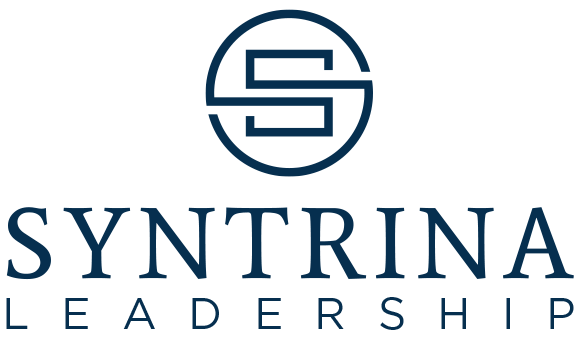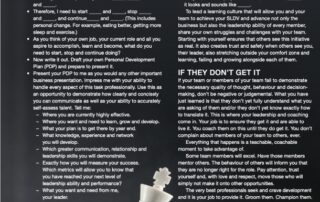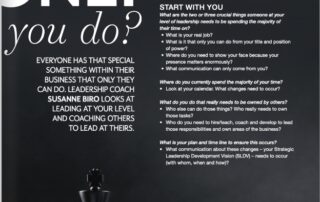CU Insight: Leaders, How Are You?
As published in CU Insight At this stage in your life, with everything occurring in the world and the vast implications to the global economy, your industry, and your business, few things get to be about you—how you are feeling or really doing, deep inside of yourself. As an experienced leader, your job requires you to give to everyone else: vision, strategy, answers, time, attention, information, approval, feedback, coaching, encouragement, validation, and confidence. It seems everyone around you either wants or needs something from you in order to perform and be successful. You focus on others all day at work. Then, if you are a spouse, parent, child to aging parents, and/or volunteer in your community, you continue this focus on others throughout the majority of your personal life. When is your life ever about you? Steve Jobs used to walk with his coach, Bill Campbell, on Sundays, which he used as time for himself; time to reflect, talk freely, hear himself think, get perspective, and focus himself. If you don’t currently have someone like Bill in your life, please use this post as one way to quiet the demands, fears, and noise of the world to make time for [...]














